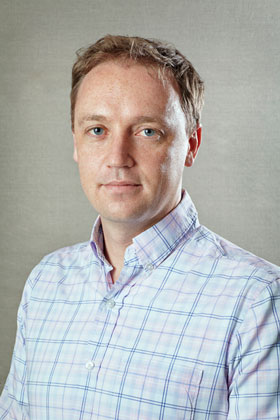
A Woodstock, Cape Town-based mobile phone-based instant-messaging and chat-room service called 2go is fast becoming one of the most talked-about Internet companies in Africa, with as many as 1m people connected at a time.
2go, which was founded five years ago, has 1,5m active users in SA — but this pales next to the more than 9m active users in Nigeria. It claims it has has more than 21m users across Africa, Indonesia and India and focuses specifically on the feature-phone market, though it is looking to offer smartphone applications, too.
Started by two SA students in 2007, 2go is a direct rival not only to Stellenbosch-based Mxit, but it also competes with Research in Motion, with its BlackBerry Messenger (BBM) platform, and the fast-growing, cross-platform WhatsApp.
Cofounders and co-CEOs Alan Wolff and Ashley Peter, who met while studying computer science at the Wits University, conceived 2go, which they self-funded.
When 2go was launched, it offered only a simple chat room and private chatting functionality. Now in its third version, it allows users to upload profile pictures, import their contacts and share images.
To break into Africa, the company focused on larger markets such as Nigeria, Kenya and Ghana and targeted the biggest universities by creating chat rooms for them and allowing users to request additional chat rooms.
“Everything we do is aimed at an African users,” says director Peter Lockhart. “There’s great disparity between handsets but our goal is to offer a lean application, with a fast user experience, that’s also curated to their tastes.”
Lockhart, who has worked for a number of Internet service providers in SA, says the founders built functionality that generated revenue from the outset using premium-rated SMS.
All peer-to-peer communication between users on one another’s contact lists is free, but people wishing to participate in chat rooms or purchase content such as jokes, poems and facts have to pay using a credit system. Credits are purchases by means of SMS.
Fellow director Marc Herson, a former partner at Hasso Plattner Ventures Africa — the technology-focused venture capital firm started by billionaire SAP founder Hasso Plattner — is also an ex-executive in residence at Softbank Capital and has worked for major record labels and investment houses.
Lockhart joined 2go two years ago, while Herson, who left SA in 1999 to do an MBA and work in digital media, joined in June. The two directors regard 2go as being positioned “somewhere between” BBM and WhatsApp and Mxit.

Herson says the site grew slowly at first, both in SA and in other African markets. However, about 18 months ago, registrations in Nigeria began exploding upward. “First we were seeing 100 users a day, then a thousand, and now 2go gets around 40 000 new users every day.”
It claims to have 6m registered users in SA, of which a quarter are active. That’s substantial, given that Mxit claims 10m active users locally.
Lockhart says most users appear to be using 2go as an SMS replacement service and there is a strong user base of university students.
Now, the focus is on expansion. Lockhart says the company wants to increase its staff complement of fewer than 10 people by hiring engineers, in particular, to manage its rapidly growing server infrastructure.
Lockhart says 2go’s strength is the attention to detail its developers have put into the platform. “All of our focus is on building the product that’s right for the market. Every pixel is thought about, from the number of links to the language used,” he says.
The company makes money not only from selling content and access to online chat rooms but also through advertising. The bulk of this revenue comes from clickable ads it displays on the 2go start-up splash screen.
In order to minimise data use, the company doesn’t push live ads to users. Instead, splash-screen ads are sent to the device and displayed a set number of times. Once the quota of displays has been met, the ad is replaced with a new one. “We’ve seen amazing engagement rates with some campaigns because we can target by age, gender, or even handset type,” says Herson.
Like Mxit does through research firm Pondering Panda, 2go uses its platform to conduct consumer research, both for its own purposes and for third parties.
“For instrance, we did one on banks in SA and discovered that the leading bank among our base is Capitec at 19% of respondents. We also found that 15% are unbanked,” Herson says. — (c) 2012 NewsCentral Media

